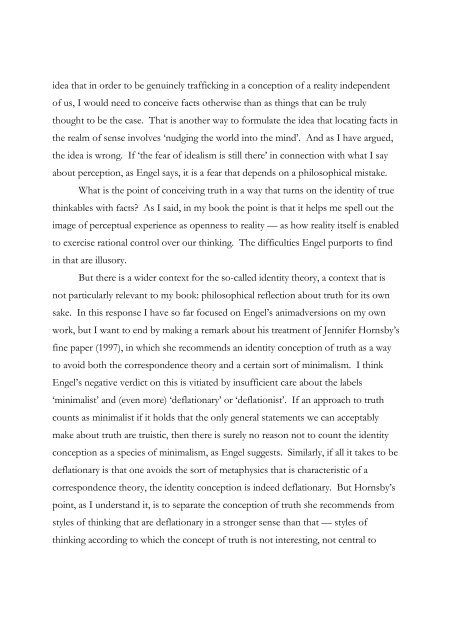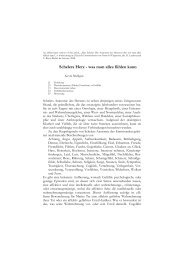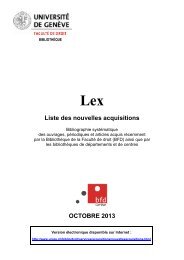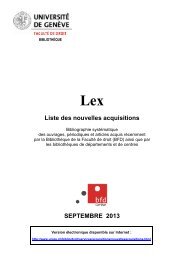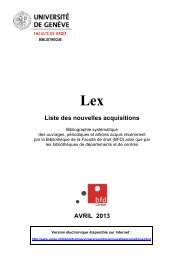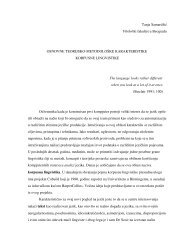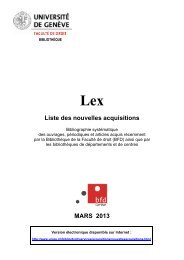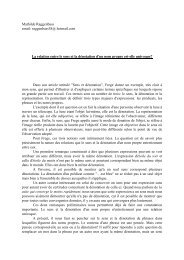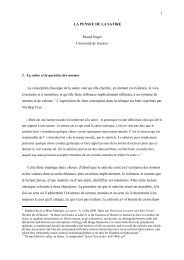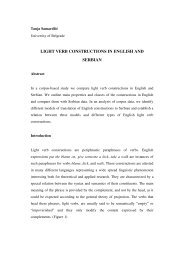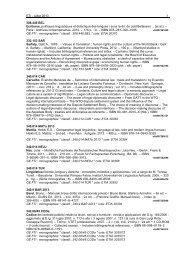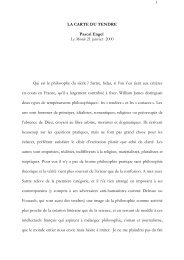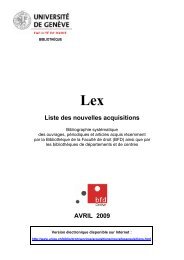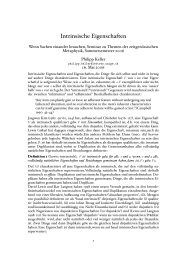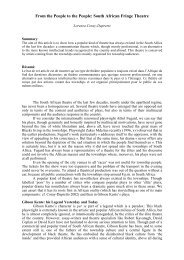2005 Unimportance of being modest A footnote to McDowel
2005 Unimportance of being modest A footnote to McDowel
2005 Unimportance of being modest A footnote to McDowel
You also want an ePaper? Increase the reach of your titles
YUMPU automatically turns print PDFs into web optimized ePapers that Google loves.
idea that in order <strong>to</strong> be genuinely trafficking in a conception <strong>of</strong> a reality independent<br />
<strong>of</strong> us, I would need <strong>to</strong> conceive facts otherwise than as things that can be truly<br />
thought <strong>to</strong> be the case. That is another way <strong>to</strong> formulate the idea that locating facts in<br />
the realm <strong>of</strong> sense involves ‘nudging the world in<strong>to</strong> the mind’. And as I have argued,<br />
the idea is wrong. If ‘the fear <strong>of</strong> idealism is still there’ in connection with what I say<br />
about perception, as Engel says, it is a fear that depends on a philosophical mistake.<br />
What is the point <strong>of</strong> conceiving truth in a way that turns on the identity <strong>of</strong> true<br />
thinkables with facts? As I said, in my book the point is that it helps me spell out the<br />
image <strong>of</strong> perceptual experience as openness <strong>to</strong> reality — as how reality itself is enabled<br />
<strong>to</strong> exercise rational control over our thinking. The difficulties Engel purports <strong>to</strong> find<br />
in that are illusory.<br />
But there is a wider context for the so-called identity theory, a context that is<br />
not particularly relevant <strong>to</strong> my book: philosophical reflection about truth for its own<br />
sake. In this response I have so far focused on Engel’s animadversions on my own<br />
work, but I want <strong>to</strong> end by making a remark about his treatment <strong>of</strong> Jennifer Hornsby’s<br />
fine paper (1997), in which she recommends an identity conception <strong>of</strong> truth as a way<br />
<strong>to</strong> avoid both the correspondence theory and a certain sort <strong>of</strong> minimalism. I think<br />
Engel’s negative verdict on this is vitiated by insufficient care about the labels<br />
‘minimalist’ and (even more) ‘deflationary’ or ‘deflationist’. If an approach <strong>to</strong> truth<br />
counts as minimalist if it holds that the only general statements we can acceptably<br />
make about truth are truistic, then there is surely no reason not <strong>to</strong> count the identity<br />
conception as a species <strong>of</strong> minimalism, as Engel suggests. Similarly, if all it takes <strong>to</strong> be<br />
deflationary is that one avoids the sort <strong>of</strong> metaphysics that is characteristic <strong>of</strong> a<br />
correspondence theory, the identity conception is indeed deflationary. But Hornsby’s<br />
point, as I understand it, is <strong>to</strong> separate the conception <strong>of</strong> truth she recommends from<br />
styles <strong>of</strong> thinking that are deflationary in a stronger sense than that — styles <strong>of</strong><br />
thinking according <strong>to</strong> which the concept <strong>of</strong> truth is not interesting, not central <strong>to</strong>


